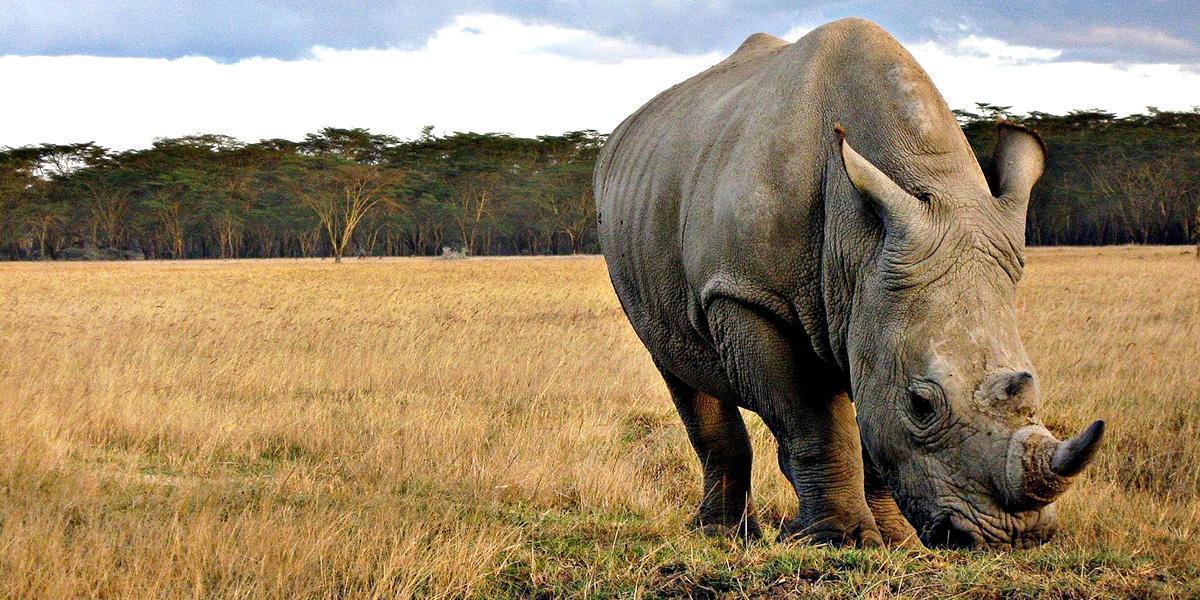
Disastrous Decision for Rhinos: South Africa’s Top Court Lifts Ban on Rhino Horn Sales

As a result of South Africa’s highest court rejecting a bid by the government to keep a ban on the sale of rhinoceros horn, it will soon be legal to buy and sell the land mammals’ horns in the country.
This news comes just weeks after poachers broke into a rhino orphanage in South Africa, killing two baby rhinos for their prematurely developed horns. The development also follows the news that 16 rhino carcasses were been found in Kruger National Park in South Africa since the beginning of March.
According to National Geographic, the moratorium on the domestic trade has been lifted as a result of a lengthy legal battle between rhino owners, who farm rhinos like livestock and desire to sell their horns on the market and the government’s Department of Environmental Affairs. Though the trade of rhinoceros horn was internationally banned in 1977, the Department of Environmental Affairs restricted domestic tradition in 2009 after a jump in poaching.
John Hume is one of the individuals who fought hard against the government’s moratorium. The owner of the world’s largest rhino farm (with more than 1,000 rhinos he’s bred), he sued the government in 2009 to overturn the policy. Hume claims the only way to protect the rhinos he raises is to sell the horns they grow, that way enough funds will be procured to protect them.
Now that it is legal to domestically trade rhino horn, people in South Africa can get a permit to sell the item that is responsible for driving poaching. Foreigners will be allowed to export a maximum of two horns for “personal purposes.”
Rhino horn is worth more than its weight in gold, as The Dodo pointed out, despite it being made of keratin—the same material as one’s fingernails. Already, organized crime groups profit from the illegal trafficking of the horn into Asia, where it is believed to have medicinal properties.
According to Susie Watts of WildAid’s Africa Program, allowing domestic trade in South Africa to resume will undoubtedly result in the horn being trafficked to Asia. She said:
“Legalizing domestic rhino horn trade in South Africa opens the door to further illegal exports of rhino horn. There is no domestic demand for rhino horn products and, as the pro-trade lobby very well knows, the reason why the moratorium was implemented in the first place was to prevent domestic trade from being used as a cover for smuggling.
“There is no realistic way to maintain chain of custody over rhino horns and prevent them from being trafficked abroad. There should be no legal horn market so long as rhino poaching, illegal trade and consumer demand are out of control.”
Now that the moratorium has been lifted, conservationists and activists fear that poaching will increase exponentially in South Africa. This is because the country is home to 70 percent of the world’s 29,500 rhinos—all of which are in the midst of a poaching crisis. Clearly, there is a reason for concern, as poaching has skyrocketed in the past decade. In 2016, for example, 1,054 rhinos were poached in South Africa.
“If these regs are promulgated, we will see a significant rise in poaching, as poachers use the significant loopholes to cater to the increased demand for horn in the Far East,” Morgan Griffiths of the Wildlife and Environment Society of South Africa said.
Reposted with permission from our media associate True Activist.

 233k
233k  41k
41k  Subscribe
Subscribe 